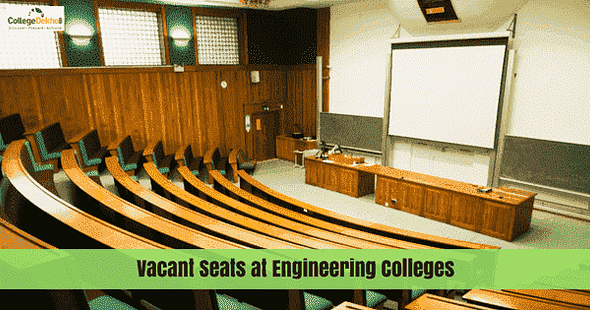
The committee constituted by the HRD Ministry has provided rather severe solutions to deal with seats vacant at IITs and NITs. The committee stated that unpopular courses offered at the IITs and NITs should either be removed from the course list or the number of seats in these courses must be reduced. It also stated that fine should be imposed on students who do not join the course after confirming admission.
Also Read: IIT-Madras: Websites of the Institute Hacked
The three-member committee was formed to deal with close to 3,000 vacant seats that remained even after the 6 th round of joint counseling. Director of IIT Kharagpur , Partha Pratim Chakraborty was the panel head.
Currently, 73 seats remain vacant at the IITs while 1,518 seats remain vacant at the NITs. Recommendations of the panel will be sent to the IIT Council and NIT Council for discussion and approval.
After considering the huge number of vacancies, some of the institutes have decided to reduce the number of seats and even decided to close down a few courses. Furthermore, new courses will only be started after a thorough analysis of the requirement.
The panel also suggested that 50 per cent of the seat acceptance fee must be charged as a penalty on applicants who withdraw their application late or don’t join the academic session. The penalty was removed in 2016 which further encouraged the students to reserve seats and release them later when the session had started.
The committee has also pointed out that NITs should convert the state quota seats to general seats if they remain vacant even after several rounds of counseling. Currently, 50% seats at NITs are reserved for state candidates. NITs in the northeastern states are not able to fill their seats as the state quota seats are not fully utilized. Also seats at some of the best NITs like NIT Surat and NIT Jalandhar having 115 and 110 vacant seats, respectively.
Also Read: IIT-B Students Come up with Cure for Parkinson's Disease through Stem Cell Therapy
Since the class 12 board exam result will no longer be considered for evaluation in JEE (Main) rank, the panel suggested that the joint seat allocation should be started earlier. According to the report, the idea is to finish the process early so that first-year students can join at least two weeks early for the induction programme. Early joining of students will also enable the council to evaluate the actual number of vacant seats and seat allocation can be conducted accordingly.


 Follow us
Follow us













